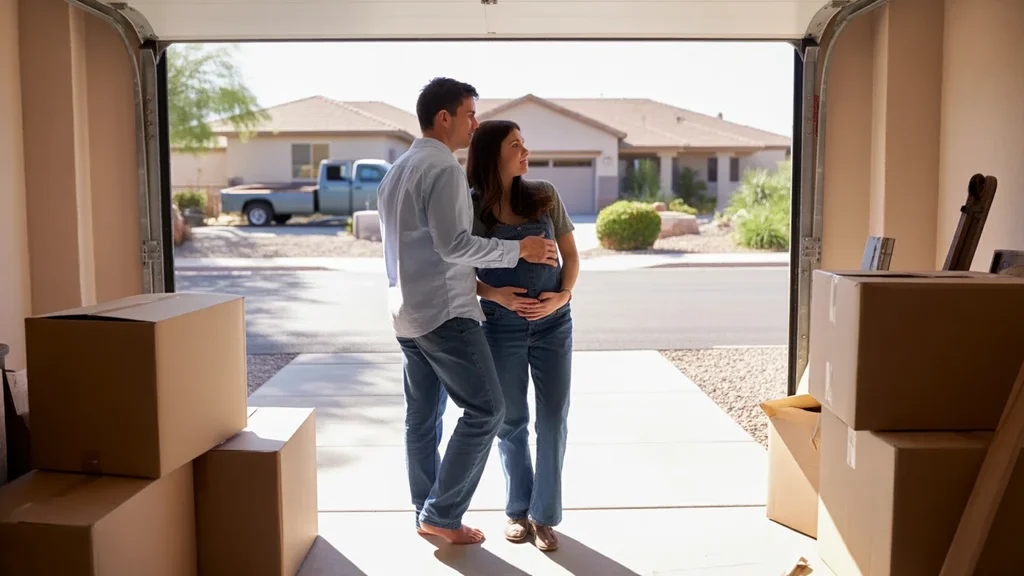The Housing Market in Apache Junction Today

For those weighing the decision between renting an apartment or buying a house in Apache Junction, understanding the current housing landscape is crucial. In recent years, the local market has seen rising prices and tightening inventory, reflecting trends across the Phoenix metro area. However, Apache Junction still offers relative affordability compared to many nearby cities.
New housing developments are rising in and around the city center, expanding options for both renters and buyers. At the same time, Apache Junction’s growing popularity with retirees and families means more competition for available units. As of 2023, the housing climate favors sellers, with demand often outpacing supply.
Renting in Apache Junction: What’s Typical?
Renters in Apache Junction can expect to pay around $1,100 per month for a basic one-bedroom apartment, while a mid-range two-bedroom unit averages $1,450. Prices are higher for apartments with luxury finishes, premium amenities, or prime locations. Newer complexes near downtown tend to be the priciest.
Over the past year, rent prices in Apache Junction have risen by approximately 6%, outpacing wage growth. Still, rents remain lower than in Scottsdale, Tempe, and other metro hotspots. Retirees, young professionals, and small families make up a large share of the city’s renters.
Rental inventory in Apache Junction is relatively tight, with few vacancies. Affordable units are snapped up quickly, so renters need to act fast. Most leases include water, sewer, and trash, but tenants typically pay their own electricity bills, which can soar with air conditioning use.
Owning a Home in Apache Junction
As of mid-2023, the median home price in Apache Junction stands at $385,000, up 9% from a year ago. For a buyer putting 10% down on a 30-year mortgage at 6.5% APR, that translates to a monthly payment around $2,450, excluding taxes and insurance.
Homeowners in Apache Junction face additional costs like property taxes (averaging 0.6% of home value annually), homeowners insurance (about $1,200 per year for adequate coverage), and HOA dues (which can range from $30 to $300+ monthly). Maintenance and repairs are also the owner’s responsibility.
While costlier upfront than renting, owning a home provides stability, tax benefits, and the opportunity to build equity. Apache Junction’s reasonable prices make homeownership attainable for many middle-class earners. However, high interest rates and limited starter-home inventory pose challenges for first-time buyers.
Renters vs. Homeowners: Who Lives Where?
Apache Junction’s homeownership rate stands at 71%, slightly higher than the national average. Owners tend to be older and more established, with a median age of 52. They gravitate toward the city’s quiet residential neighborhoods with detached single-family homes.
Renters, with a median age of 39, cluster in the apartment complexes and multifamily housing near the city center. They include singles, young couples, small families, and downsizing retirees. Some are saving to buy a home, while others rent by choice or necessity.
The path to homeownership isn’t easy for all. Soaring prices have put homes out of reach for many working-class residents, even those earning decent salaries. Down payment requirements, credit checks, and cultural factors also create barriers. But overall, Apache Junction offers viable paths to both renting and owning.
Table: Typical Monthly Housing Costs in Apache Junction
Here’s what housing costs might look like each month in Apache Junction:
| Cost | Apartment (1BR) | House (Median Price) |
|---|---|---|
| Rent/Mortgage | $1,100 | $2,450 |
| Property Tax | $0 | $190 |
| Insurance | $15 | $100 |
| Utilities | $150 | $280 |
| HOA Dues | $0 | $50 |
| Total | $1,265 | $3,070 |
Estimates reflect mid-range properties and average usage.
What’s Driving Costs Up or Down?
Several factors are pushing housing costs higher in Apache Junction. On the demand side, the city is attracting more residents drawn by its affordability, location, and quality of life. Retirees, remote workers, and families priced out of other areas are moving in. Phoenix’s sprawling growth also spills over into Apache Junction.
On the supply side, zoning rules and land-use policies have limited new housing construction. Apartment complexes are going up downtown, but most of the city is zoned for low-density single-family homes. Rising costs for labor, materials, and infrastructure also constrain development.
Looking ahead, experts predict housing demand in Apache Junction will continue to grow. But if interest rates stay high and the economy cools, price growth could moderate. The city is exploring policies to boost affordable housing and reduce costs. But for now, the market favors those already owning homes.
FAQs About Housing in Apache Junction
- Is Apache Junction affordable to live in? Compared to Phoenix averages, yes. But rising costs are straining budgets.
- Why are housing prices changing? Demand is growing faster than supply, pushing prices up. See more in our Apache Junction cost of living guide.
- How does Apache Junction compare to nearby cities? Housing is pricier than in coolidge but cheaper than Scottsdale or Gilbert.
Making Smart Housing Decisions in Apache Junction
Housing is the biggest expense for most Apache Junction residents. Renting is cheaper in the short run, but a balanced monthly budget is essential. Buying a home provides more control and wealth-building potential but requires substantial savings and a steady income to cover the $1,800 higher monthly costs vs. renting.
Ultimately, the choice depends on one’s life stage, goals, and financial situation. Talking to a local real estate agent or financial advisor can help clarify the pros and cons. But by understanding the market landscape, residents can make informed housing decisions for their unique needs.
